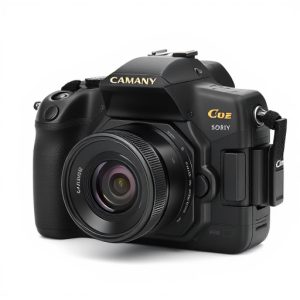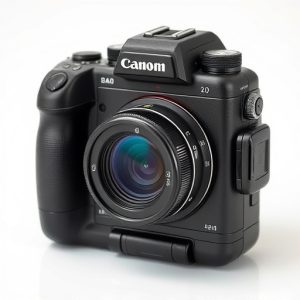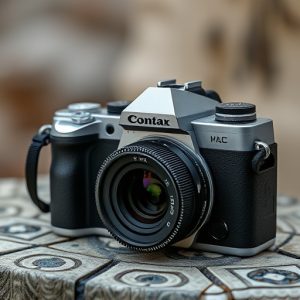Navigating Body Cameras for Law Enforcement: Features, Legal Issues, and Buying Guidance
Body cameras for sale have become indispensable tools for modern law enforcement, offering a range o…….
Body cameras for sale have become indispensable tools for modern law enforcement, offering a range of high-tech features designed to enhance transparency and accountability while ensuring officer safety. Advanced models feature high-definition video recording and wide-dynamic range sensors to adapt to varying lighting conditions. These cameras are built to withstand harsh environments and physical stress without compromising performance. Top-tier body cameras come equipped with GPS tracking, dual-facing cameras for capturing interactions discreetly, integration capabilities with other law enforcement technologies, high-quality audio recording, long battery life, and fast data upload features—all crucial for officers to document encounters throughout their shifts effectively. When procuring a body camera for sale, it's vital to evaluate its technical specifications in alignment with your agency's operational needs, considering factors like resolution, durability, battery life, storage capacity, and low-light performance. Additionally, agencies must implement comprehensive data management protocols that comply with privacy laws and regulations, ensuring secure handling of footage. The integration of body cameras into law enforcement operations requires a thoughtful approach to policy development, training, and ongoing maintenance to maximize their benefits in fostering community trust and accountability while minimizing potential risks.
policing, body cameras, law enforcement technology, privacy, legal issues, body camera purchase, deployment, benefits, challenges, top body camera models.
In recent years, the integration of body cameras into law enforcement has sparked significant debate and scrutiny. This article delves into the multifaceted nature of police body cameras, a pivotal technology in modern policing. We explore the critical features and functionalities that define the top body camera models on the market, providing an informed evaluation to guide your decision-making process when considering a body camera for sale. Subsequently, we address the pressing legal considerations and privacy concerns that come with implementing these devices. With a detailed examination of the impact of body cameras on policing practices, we weigh their benefits against the challenges they present. Finally, we offer best practices for procuring and deploying a police body camera for sale, ensuring a seamless integration into operational protocols. Join us as we navigate this transformative landscape in law enforcement technology.
Evaluating Body Camera Options: Features and Functionality of Top Models on the Market
When considering the acquisition of a body camera for sale, law enforcement professionals are faced with a variety of models, each offering unique features and functionality designed to enhance transparency, accountability, and safety. The top-of-the-line body cameras available today boast high-definition video recording capabilities, ensuring clear footage that can be critical in post-incident analysis. These devices often come equipped with wide-dynamic range sensors to capture images clearly in a range of lighting conditions, from the brightest daylight to the darkest nighttime environments. Additionally, many models are built with rugged durability in mind, capable of withstanding harsh weather and rough handling without compromising performance.
In terms of functionality, advanced body cameras for sale incorporate features such as GPS tracking for precise location data, which can be crucial during complex investigations. Body-worn cameras also typically come with both forward-facing and covert rear-facing cameras, allowing officers to record their interactions while also capturing their perspective without alerting potential subjects that they are being recorded. Integration with other law enforcement systems is another key aspect, with these devices often capable of syncing with in-car video systems or body-worn sensors for a comprehensive operational suite. The inclusion of high-quality microphones and speakers enables clear audio recording, which is just as important as visual documentation. Furthermore, models with long battery life and fast data upload capabilities ensure that officers can operate their cameras throughout their shifts without interruption, while also facilitating the timely transfer of footage to servers for secure storage and review. Shopping for body cameras for sale thus requires careful consideration of these features to meet the specific needs of a department or individual officer.
Legal Considerations and Privacy Concerns When Implementing Police Body Cameras
The deployment of police body cameras has sparked significant debate around legal considerations and privacy concerns, which are pivotal in shaping their effective implementation. Legally, agencies must navigate a complex web of regulations to ensure compliance with data protection laws and individual privacy rights. These devices are capable of capturing vast amounts of sensitive information, necessitating stringent protocols for data storage, access, and retention. The choice of body camera for sale must be accompanied by robust policies that address who has access to the footage, under what circumstances it can be reviewed or shared, and how long the data is retained. Moreover, clear guidelines must be established to differentiate between public and private spaces, ensuring that individuals’ reasonable expectations of privacy are respected in all situations.
Privacy concerns extend beyond legal compliance, touching on ethical considerations and community trust. The potential for misuse or unintended exposure of personal data poses significant risks that can undermine the intended benefits of body cameras. It is crucial to implement safeguards such as encryption and secure data storage solutions to protect against unauthorized access. Transparency in how footage is used and who has visibility into these recordings is essential to maintain public confidence. Additionally, the involvement of stakeholders, including privacy advocates, legal experts, and community members, during the planning phase can help create a framework that respects individual privacy while promoting accountability and transparency in law enforcement.
The Impact of Body Cameras on Policing: Benefits and Challenges
Body cameras have become a pivotal tool in modern policing, offering a multifaceted impact on law enforcement practices. These devices serve as a visual record of interactions between officers and the public, enhancing transparency and accountability. When incidents occur, body camera footage provides an objective perspective that can clarify events and facilitate informed decision-making by authorities. This transparency not only fosters community trust but also acts as a deterrent against misconduct. For those interested in equipping their departments with the latest technology, body cameras for sale are widely available, offering various models tailored to diverse operational needs.
However, the deployment of body cameras also presents challenges that must be carefully managed. Privacy concerns arise as these devices continuously capture audio and video. Clear policies are necessary to delineate when and how footage is used, ensuring compliance with privacy laws and regulations. Additionally, the sheer volume of data generated by body cameras necessitates robust data management systems to handle storage, retrieval, and review processes without compromising the integrity of investigations or the privacy of individuals. The integration of these systems into existing police protocols requires careful planning and training to maximize their benefits while mitigating potential risks.
Procuring a Police Body Camera for Sale: Best Practices for Purchasing and Deployment
When acquiring a police body camera for sale, it’s crucial to consider the technical specifications and capabilities that align with the operational needs of your law enforcement agency. A body camera for sale should not only capture high-quality footage but also be robust enough to endure the varied conditions officers may face in the field. The best practices for purchasing include thorough research into the camera’s resolution, field of view, battery life, data storage capacity, and low-light performance. Additionally, ensure that the body camera for sale complies with privacy laws and regulations, as well as any specific guidelines set forth by your jurisdiction or departmental protocols.
Once you’ve identified a suitable body camera for sale, deployment planning is essential. This involves training officers on proper usage, establishing clear policies regarding when and how the cameras should be employed, and determining who will have access to the recorded footage. It’s also important to set up a secure data management system that protects against unauthorized access while allowing for effective retrieval of footage as needed. Regular maintenance checks should be integrated into the deployment strategy to maintain the functionality and reliability of the body cameras over time, ensuring they remain an effective tool in enhancing accountability and transparency within your police force.


